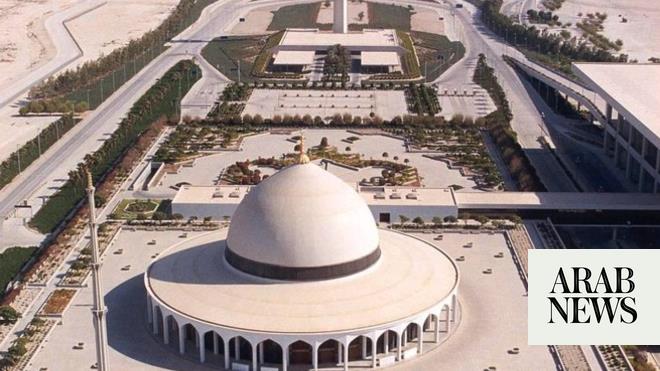
The airport — which serves the city of Jubail and its industrial complexes — is positioning itself as a regional passenger and cargo hub.
A further three to five airlines are due to start serving the airport by the end of the year, pending approvals.
LONDON: King Fahd International is expected to see rising passenger and cargo volumes as the Dammam-based airport expands its infrastructure and welcomes new airlines, according to the CEO of Dammam Airports Company (DACO) Turki Abdullah Al-Jawini.
The airport — which serves the city of Jubail and its industrial complexes — is positioning itself as a regional passenger and cargo hub, Al-Jawini told Arab News.
FASTFACTS
The airport served 9.8 million passengers in 2017 and it is forecasting 6 to 8 percent growth this year compared to last year.
“We would like to take advantage of the strategic location of King Fahd International airport as the Kingdom’s eastern gateway; its proximity to one of the largest sea ports, Dammam Port and its proximity to (other) GCC capitals. All this combined can make the perfect ingredients to make a logistic cargo hub at the airport,” he said.
The first-quarter passenger figures for this year were “very promising,” he said, with 4.2 percent growth in passenger numbers compared to the same quarter last year. “The airport over the last few years has seen a very positive growth trend,” he said.
“With those numbers, we are forecasting 6 to 8 percent growth this year compared to last year,” he said. The airport served 9.8 million passengers last year.
He told Arab News that a further three to five airlines are due to start serving the airport by the end of the year, pending approvals. Bangladesh’s Biman Airlines agreed to fly to and from the airport earlier this year, he said. There are currently 37 airlines serving the airport.
Al-Jawini added that he is keen to see more passengers from North America, Europe and Asia using the airport. Currently around 45 percent of passengers are domestic travelers, he said.
King Fahd International is also expanding its existing infrastructure to allow for rising passenger growth, with the aim of increasing its capacity from an estimated 12.6 million passengers to 25-30 million passengers in the next 10-15 years.
The expansion forms part of the airport’s 30-year masterplan launched last July following the creation of DACO. The airport company — which is wholly-owned by the Saudi Civil Aviation Holding Company — is part of Saudi Arabia’s efforts to privatize certain sectors of its economy. The Kingdom has planned to privatize all of the country’s airports.
The masterplan includes the construction of a “cargo village,” with Al-Jawini telling Arab News that tenders for the latest construction work are being reviewed, and that he hoped that contracts would be awarded within a “few weeks.”
Al-Jawini’s comments follow the signing of an agreement on Monday with a logistics automation company, Vanderlande, to develop a new baggage-handling system at the airport. DACO also signed a deal with Serco Middle East to instal fire and rescue services at the airport.
The deals were announced at the annual Airport Show in Dubai this month where DACO is scheduled to provide further updates on the airport’s 30-year plan.
Al-Jawini declined to comment on questions about whether the company would consider a share sale or seek any other form of foreign investment to support the airport’s expansion.












